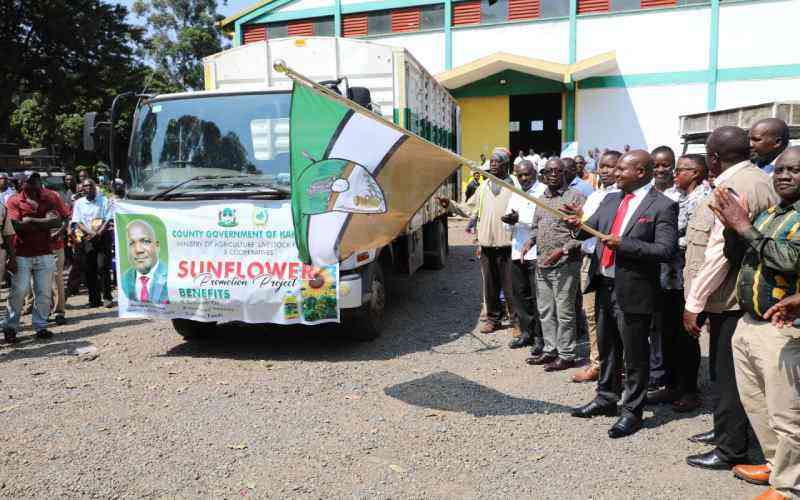×
The Standard e-Paper
Fearless, Trusted News

Kakamega Governor Fernandes Barasa flags off distribution of 768 pond liners worth Sh33million to boost fish farming. [Benard Lusigi,Standard].
Fish farmers in Kakamega have received a boost following the distribution of 768 Polyvinyl Chloride (PVC) pond liners worth Sh33 million at Lutonyi Fish Factory in Lurambi Constituency.